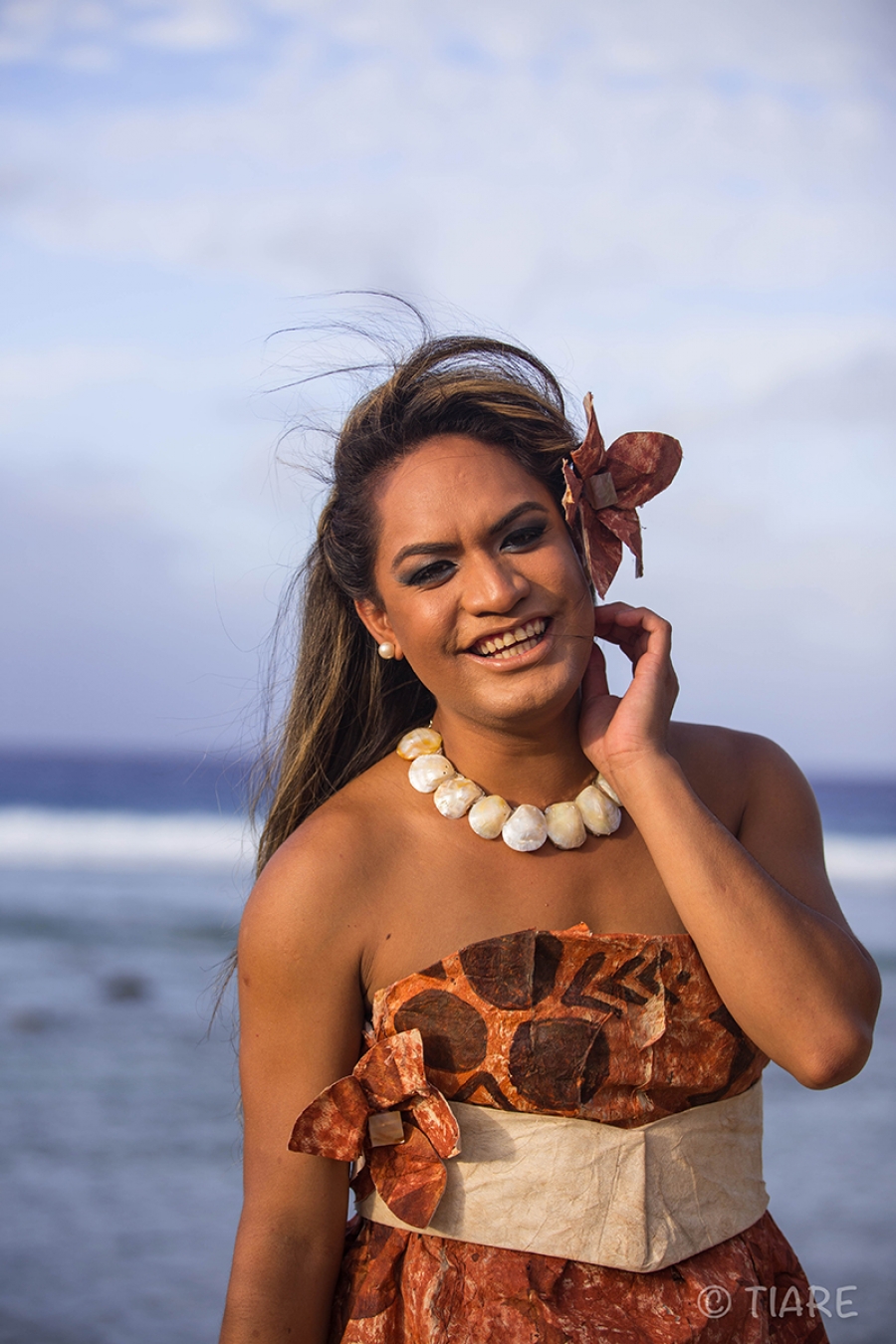Te Tiare Association build capacity in ‘Effective LGBTQI Rights Advocacy’
Friday 9 September 2022 | Written by CI News Staff | Published in Local, National

Tatryanna Utanga. 19110868
In a bid to improve its advocacy work, a representative from Te Tiare Association (TTA) took part in the regional ‘Effective LGBTQI Rights Advocacy’ virtual training held over a week ago.
Association executive officer Tatryanna Utanga took part in a nine half-day virtual training organised by the Pacific Sexual and Gender Diversity Network (PSGDN).
The aim of the training was to increase the knowledge and confidence of Network’s national member organisations and strengthen their capacities in
developing effective LGBTQI rights advocacy strategies that focus on key issues that affect them. These issues include ending violence and discrimination against Pacific Islanders of Diverse Sexual Orientations and Gender Identities & Expressions and Sex Characteristics (PIDSOGIESC+).
Homosexuality is illegal in the Cook Islands under the Crimes Act 1969, which criminalises “indecent acts” and acts of “sodomy”.
In lead up to the August 1st general election, Prime Minister Mark Brown said a review of the Crimes Act 1969 of the Cook Islands would be redrafted after the election in which there would be no mention made of homosexuality as a crime.
Speaking to Cook Islands News, Utanga said: “I personally found the training very important because it helps us be better or more equipped advocates for our organisations i.e. TTA. The training offers negotiation, organisation and reporting advocacy skills that should enhance the way we engage in advocacy activities. With the alluring matter of the Decriminalisation of Homosexuality legislation on the horizon, it is most opportune that we prepare ourselves for the inevitable tasks of reigniting this campaign in our movement for equality and change.”
The training highlighted some of the more pivotal mechanisms that, as advocates they need to be aware of, said Utanga.
The six-step focused programme unpacked varying strategies on how to advocate effectively and informed the participants of the potential risks when operating outside of these recommended strategies.
Utanga said she found these risk management tactics to be most useful to assist advocates on better planning and foresight, adding learning from the experiences of fellow regional members was very insightful and beneficial
“In our Pacific context it’s about synergising our efforts for equality with our traditional, religious, law and civic communities. It’s about working together to realising those changes rather than forceful clashes.
“As an advocate, I understand that everyone has a right to their own opinion on the matter, however I am more focused on getting across to our audience the correct messages, respectfully. Sometimes in these spaces advocates are at high risk of negative backlash so it’s imperative that we equip ourselves with the mental and emotional tools on how to address those risks.”
PSGDN chief executive officer Isikeli Vulavou said the organisation recognised the need to increase and improve the advocacy capacity of national member organisations at the forefront of fighting for their rights.
“This training provided queer advocates with all the necessary tools and guidelines that would equip them to advocate more effectively with different levels of society and the stakeholders that occupy/influence these different spaces so that there is some positive change in behaviour, habits, policy, and legislation for PIDSOGIESC+,” Vulavou said in a statement.
Vulavou outlined that the training was an outcome of an identified need, allowing the participants to design effective and relevant advocacy strategies that tackle and eliminate the deeply ingrained homophobia at societal and institutional levels.
Utanga said when Te Tiare Association convenes, they will organise a similar workshop with their members, paying forward the lessons learned from the training.
“I look forward to engaging more visibly in advocacy spaces beginning with the impending legislation changes as promised by the campaigning parties prior to the August 1 government general elections.”
A total of 23 participants from Kiribati, Tuvalu, Palau, Vanuatu, Tonga, Samoa, PNG, and Fiji participated in the training, which was supported by UN Women through the Spotlight Initiative.




















































